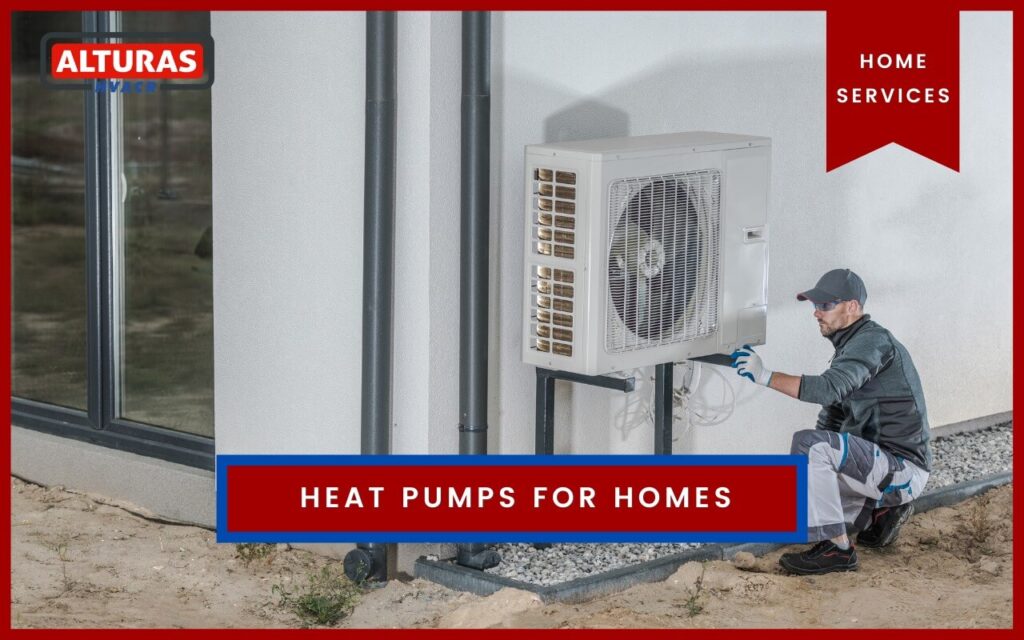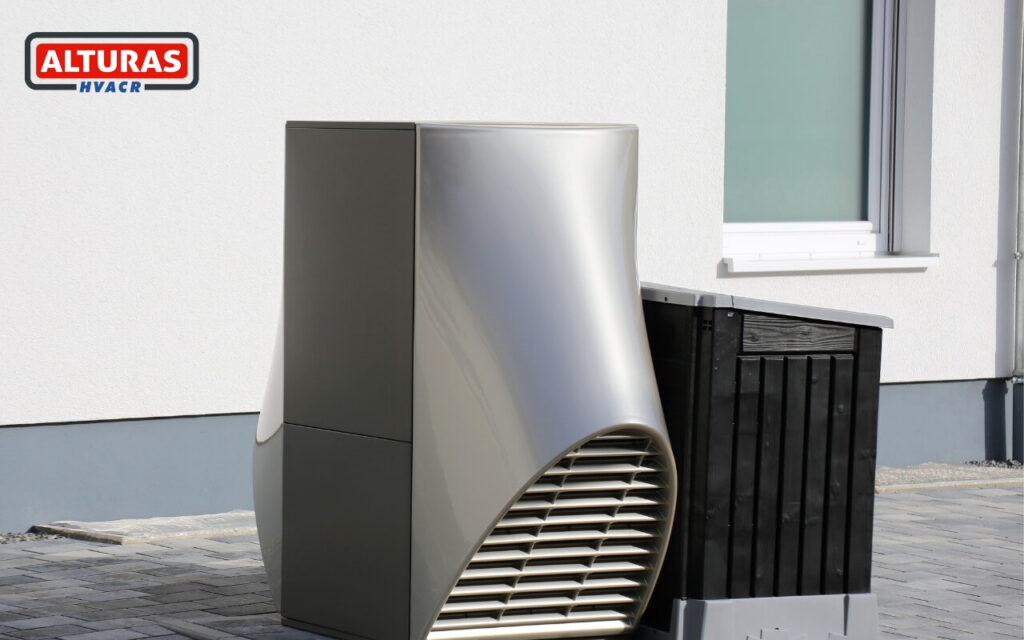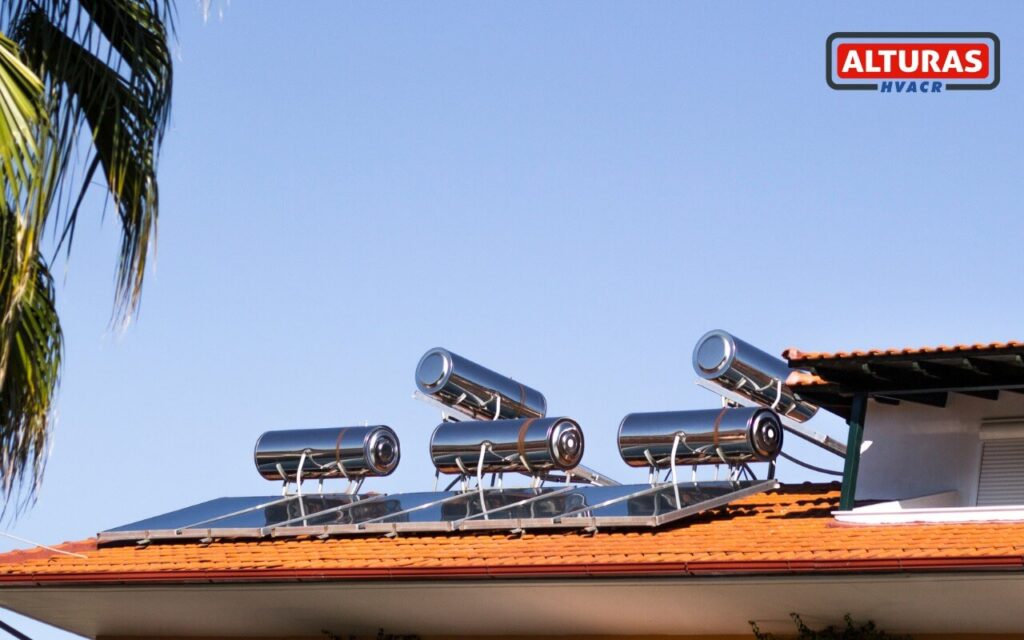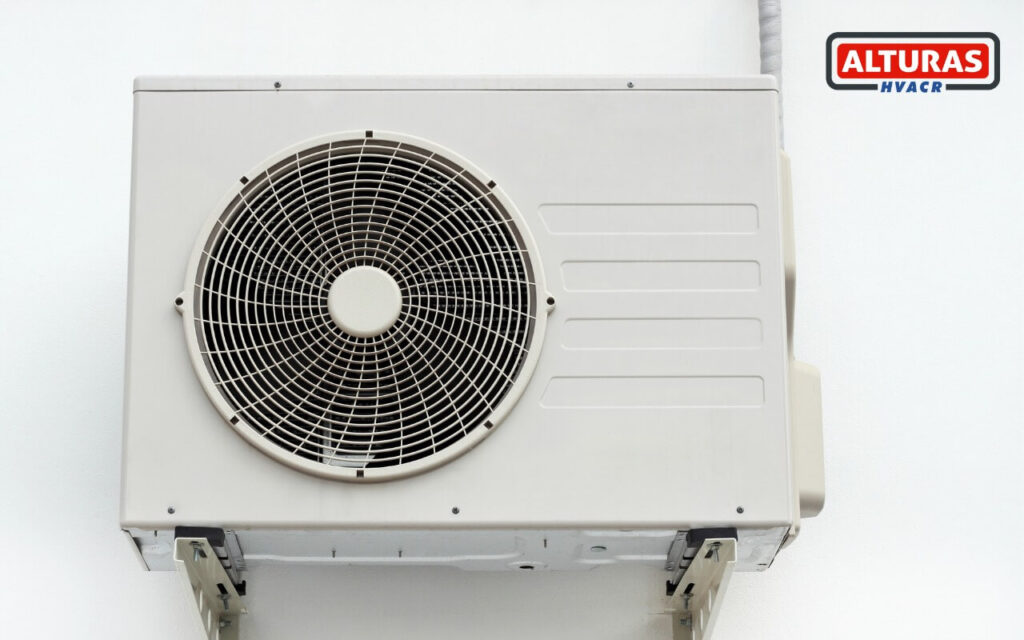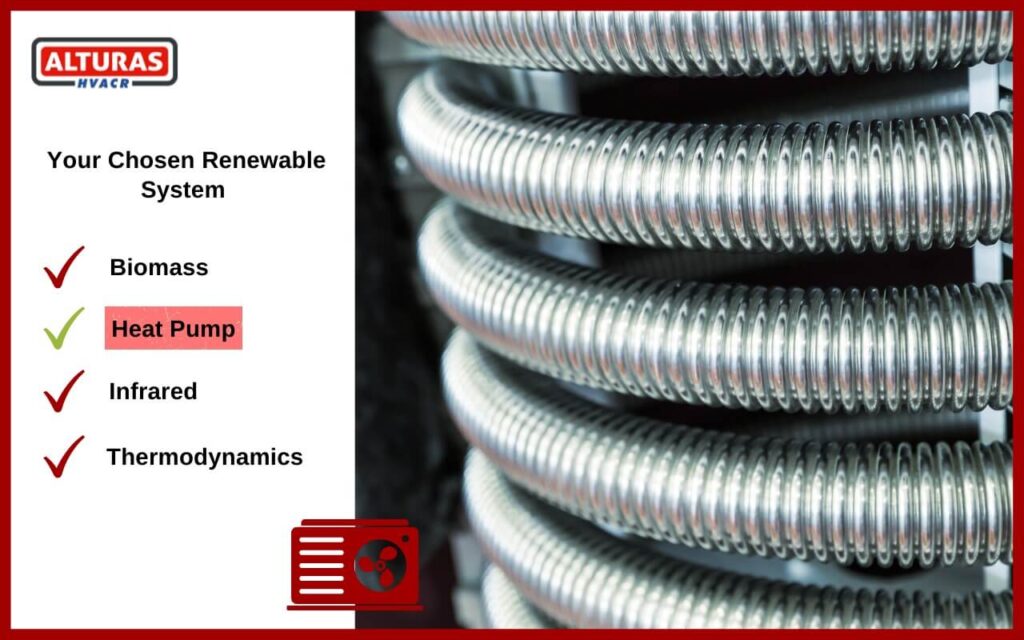Heat pumps basically offer you an energy-efficient alternative in order to furnace and air conditioners for all weather conditions. Same as your refrigerator, heat pumps also use electricity so that it can transfer heat from a cool space to a warm space while making the cool space cooler and the warm space even warmer. During the whole heating season, heat pumps move heat from the cool outdoors into your warm house.
Same as this during the cooling season, heat pumps basically move heat from inside your house into the outdoor ways. Just because they transfer heat instead of generating heat, heat pumps will efficiently provide comfortable temperatures for your entire home.
What are Heat Pumps for homes
Your air source heat pump for instance will help in extracting heat from the air that is outside your property in the same way your fridge extracts heat from its inside and a ground source heat pump functions likewise, but it actually functions by taking the remaining warmth from the soil or a water body outside of your property and moves it inside. Although we are well aware of the fact that air source heat pumps become less efficient the cooler it is outside, they are still capable of operating sufficiently in temperatures of -15 C, which is 99.99% of the year here in the UK.
They have somewhat great energy efficiency ratings and although they do have some impact on the environment the same way they need electricity in order to run, they do not combust fuels directly, so in most cases, they provide a fantastic way of lowering your carbon footprint.
Types of heat pumps for homes
There are 3 Main Types of Heat Pumps:
Air Source
These kinds of heat pumps are inexpensive to install, and they are commonly in use, this kind of heat pumps actually function very well in normal climates, with the help of outside air as a medium for heat exchange.
Water Source
Basically, the water source heat pumps dissipate heat by using water instead of air. But still, they need to have well, lake, or other water source access in order to function, and they are not as common as air source heat pumps.
Ground Source
The ground source also known as geothermal heat pumps tends to take advantage of thermal energy that is stored underground, which works by transferring heat in the same manner in order to air source heat pumps.
Due to the steady temperature inside the ground, they tend to offer a lot of efficient operation, although they are installed in a pricier and more complicated way due to the need for excavation and installation of underground piping.
To further amaze you in the selection process, there are also sub-types of heat pump systems that are:
Hybrid Heat Pump
In all those weathers that run the gamut from extreme warm in the summer to extreme cold in the winter, there are two types of hybrid systems that are available to boost productivity…
Ground & air source heat pump combos, with air entire source systems which leads the way when the air is warmer at the outside but switching to ground source when temperatures drop.
Another type is heat pump and gas or oil boiler combo, where immediate operation can offer more reliable warmth at a higher level of efficiency that is Commonly used in homes with already existing boiler systems.
Solar Heat Pump
This one is usually used in conjunction that has an air and geothermal heat pumps, solar heat pumps integrate solar panels as their power supply for the whole system. With the help of a solar geothermal setup, it is always possible to heat and cool your entire home with this renewable energy.
Absorption or Gas-Fired Heat Pump
As it is driven by another heat source rather than electricity which can be solar, geothermal or gas, these systems are more typical to industrial applications.
How to install Heat Pumps Systems
There are also a Few Different Ways to Install Heat Pump Systems, Including…
Split System
This one is considered as the most common installation on ducted systems, it also has an indoor evaporative unit that is located in a closet, basement, or attic, and the condenser and compressor unit that is located outdoors in a large metal box.
Package System
All the mechanical components are usually stored in a larger metal outdoor box. Only the ductwork is located inside the home.
Mini Split or “Ductless”
This one is considered great for homes without ducts, these work the same as air source heat pumps, albeit on a smaller scale.
Cost of heat pumps for homes
The installation cost of heat pumps is quite high. The overall cost will always depend on the size and the area needed for the installation. Ground source heat pumps are considered the most expensive of the heat pump systems. GSHPs cost anything between £18,000 and £30,000. This is due to the installation of the pipes under the ground. On an existing property, the ground will obviously need digging. Which actually means it will cost more for an existing property than a newly built one. If it is used and installed in a proper way, they can save you money on your heating bills.
Air source heat pumps come in at around half that, between £8000 and £14,000. Also, this depends on size and area. There are different types to consider such as air to air heat pumps and air to water heat pumps. When thinking about buying a heat pump, it is important to take into account how much you will save on your energy bills.
Here are some of the factors you will have to consider when reviewing the pricing of heat pump units:
Size
Usually, the capacity of a heat pump is measured in tons, and the typical units on the market would fall between 2 and 5 tons. So finding the perfect size for your home is really very important. Going for the one that is very small may require it to run continuously which can obviously raise your energy bill and wear out the system. On the other side higher tons can come at pricier up-front costs.
Brand
A lot of these brands offer a range of units at many different prices starting from cheaper, lower-quality to expensive, high-quality systems. You will have to shop around on the market and read all the reviews for each brand to make sure that you make the best choice, rather than choosing solely on price.
Installation
Hiring an HVAC contractor to help you with your heat pump installation is really very. Labor costs can differ which would depend on the heat pump type. For instance, geothermal units would require more work in order to install because of the reason that they need to be buried under at least 4 feet of the ground. In fact, ductless mini-split heat pumps can cost as little as $500 for a quick and easy installation.
Heating Seasonal Performance Ratio (HSPF)
This rating is a metric that is used to measure the efficiency of a heat pump but particularly for how it heats a home. Typical HSPF ratings on the market fall between 8.2 and 13, with the higher number being the most efficient.
Heat pump reviews
As we know that heat pumps are becoming increasingly popular as they can produce heat and electricity for your entire home in such a way that lessens the negative impact on the whole environment, but it also tends to cost you a lot less than the other machines. Air source heat pumps can be a great investment for you, but it is also very important to take a good look at other people’s experiences with the whole system. Customer reviews and experiences are always an essential part of sales, so always try and take some time to read the reviews and thoughts on this page before you go to buy.
Prior to your purchasing decision of a heat pump system, it is important to inform yourself about heat pump’s upsides and downsides. There is a multitude of heat pump advantages, which make them a great investment for the homeowner, and simultaneously, concerns that have to be regarded.
We will take a look at these advantages and disadvantages in detail below, to help you make an informed decision and make a wise investment towards this low carbon heating technology.
7 Advantages of Heat Pumps are:
- Lower running costs
- Less maintenance
- Better Safety
- Reduces Carbon Emissions
- Provides Cooling
- Long life-span
- Eligible for RHI scheme
7 Disadvantages of Heat Pumps are:
- High upfront cost
- Difficult to install
- Questionable Sustainability
- Requires significant work
- Issues in cold weather
- Not entirely carbon neutral
- Planning permissions require

